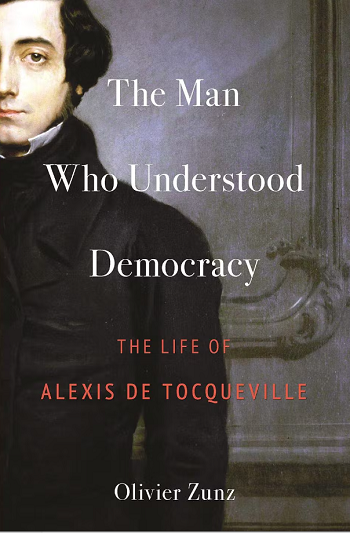In The Critic, Paul Sagar reviews a new biography of Alexis de Tocqueville by Olivier Zunz:
Alexis de Tocqueville came perilously close to never existing at all. His parents, married in 1793, spent 10 of their first 18 months of matrimony in jail — arrested for the crime of being aristocrats during the height of the French revolutionary Terror. Tocqueville’s great-grandfather was guillotined in April 1794, after being forced to watch the beheadings of his daughter and grandchildren. His newlywed parents were in the queue, awaiting the same fate, but the fall of Robespierre in July meant they were spared.
Alexis, the third son of the family, would be born in 1805, and go on to write not one, but two, of the most influential works in the history of ideas. His two-volume Democracy in America (published in 1835 and 1840) has been hailed as, variously, the first work of political science, a founding text of sociological analysis, and a landmark in the history of political philosophy.
It remains a touchstone for those attempting to understand both democracy and the United States, as well as post-Revolutionary France (Tocqueville’s animating point of comparison). His later The Ancien Régime and the Revolution (1856) attempted to locate the long-term causes of the events of 1789, and inaugurated a school of French Revolution historiography that remains alive and influential to this day.
He also enjoyed a moderately successful career as a practising politician, directly involved in France’s tumultuous political upheavals from the 1830s to the early 1850s. Constitutionally frail, and wracked by tuberculosis for the final nine years of his life before dying at just 54, he nonetheless packed a lot in.
As a narrative biography, Olivier Zunz’s The Man Who Understood Democracy succeeds tremendously. The details of Tocqueville’s life — and the events he lived through — are rendered with engaging clarity. The detailed reconstruction of Tocqueville’s nine-month trip to America in 1831–32 is especially valuable, shedding a great deal of light on what Tocqueville saw and, crucially, who he spoke to and took his lead from. Zunz does not shy away from dissolving the myth to reveal the man. Sometimes treated as though he were a gimlet-eyed sage who saw through to the very soul of the fledgling United States, Zunz shows instead the extent to which Tocqueville tended to take too much at face value, especially regarding what he was told by less than impartial interlocutors, frequently failing to scratch below the surface on his whirlwind tour.
Thus, for example, he went on to write in Democracy in America that the liberty of the United States meant that secret societies were unknown there, entirely failing to recognise not only the extent of Masonic influence in local politics, but also how objections to Masonic influence were a core feature of contestation. A young man, dazzled by the hustle and bustle of the New World, he tended to see what he wanted to see — or what others hoped he would.




